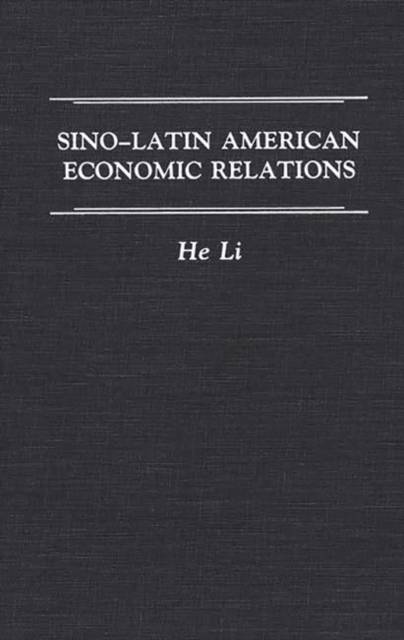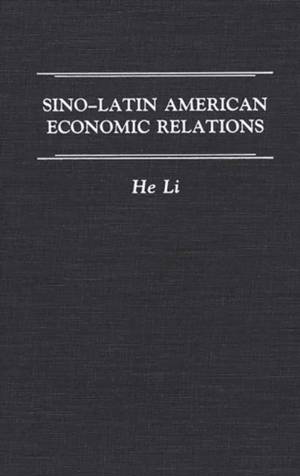
- Retrait gratuit dans votre magasin Club
- 7.000.000 titres dans notre catalogue
- Payer en toute sécurité
- Toujours un magasin près de chez vous
- Retrait gratuit dans votre magasin Club
- 7.000.0000 titres dans notre catalogue
- Payer en toute sécurité
- Toujours un magasin près de chez vous
Description
In recent years, economic relations between Latin American countries and the People's Republic of China have developed steadily, exhibiting marked tendencies toward greater diversification. Using newly released data from the Chinese Government along with extensive interviews in China and Latin America, Li gives us the first systematic analysis of the economic and political ideas underlying this surge in Sino-Latin American economic relations. His focus on China's relations with six major trading partners--Brazil, Argentina, Cuba, Chile, Mexico, and Peru--provides an accurate assessment of trends and prospects for an emerging bilateral economic partnership. The conclusions of this study find that Sino-Latin American ties have become less ideological and present PRC involvement has been largely compatible with Western interests. Since China is expected to develop into a major economic player in Latin America in the years to come, it is important for the United States to understand the implications of these burgeoning relations. This study is a valuable and much-needed contribution to the literature of South-South cooperation and collective self-reliance.
Li examines three main areas of Sino-Latin American economic relations: trade, aid, and investment. Beginning with the Communist Revolution in China, he traces the history of China's relations with the six Latin countries, moving through early developments, the post-Cuban Revolution era, the 1970s normalization period, and China's Open-Door policy. Future prospects are considered in the concluding chapters, with hopes for greater economic interactions depending on the outcomes of China's own economic reforms and Latin America's economic recession. This book will be of interest to those who practice in the sphere of world political-economic relations, as well as academics who study them.Les avis
Nous publions uniquement les avis qui respectent les conditions requises. Consultez nos conditions pour les avis.







